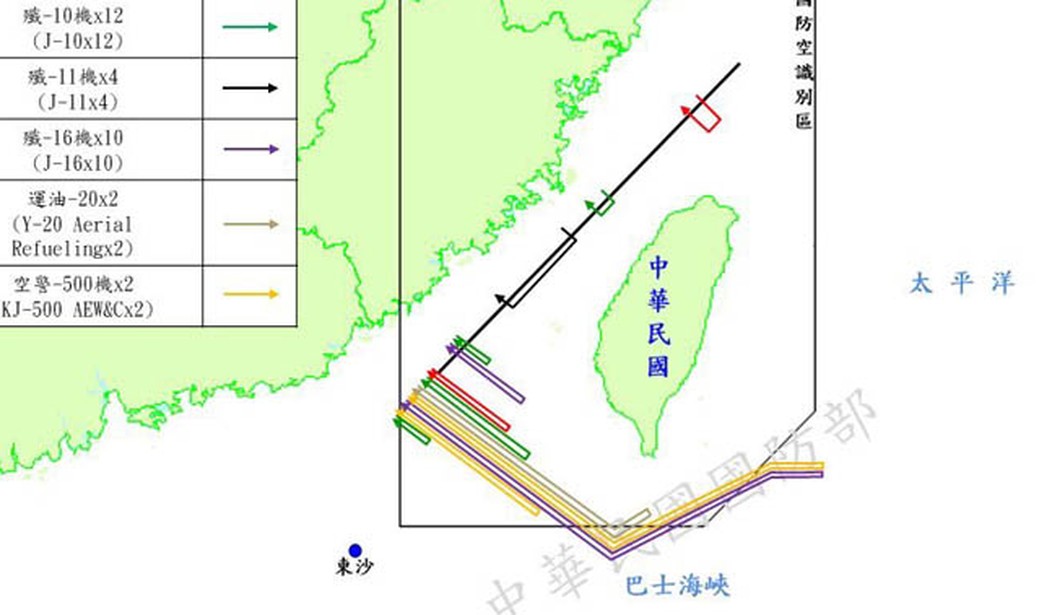If we learned anything from mainland China's slow-motion take over of Hong Kong, it should be that China has option other than rolling tanks in the streets. In Hong Kong it used legal measures and police action to stop protests and jail activists. Then it threatened everyone into silence and shut down independent news outlets, raiding their offices and jailing publishers. And the bottom line is that freedom from the mainland is now just a memory. Hong Kong's oldest pro-democracy party shut down this month because talk about democracy leads to prison these days.
The Democratic Party, one of the leading voices of opposition in the semi-autonomous city for the past three decades, has started the process of dissolution following recent warnings from Chinese government officials, two of its veteran members told CNN.
“The message was that the party has to be disbanded or there will be consequences,” said one of them, Yeung Sum, a former Democratic Party chairman.
China could pursue a similar approach with Taiwan. It can't literally roll tanks in because there's no bridge connecting Taiwan to the mainland (it's about 80 miles offshore), but it has been building up its coast guard fleet and could use those ships to quarantine the island.
China continues work on seizing the island by force. The recent “Strait Thunder” drills surrounded it with 38 naval ships. Yet China is also rehearsing novel, more severe “grey-zone” tactics that fall short of outright war. Top of the list are temporary quarantines and customs inspections of ships in Taiwanese waters, using China’s vastly expanded coastguard force.
China’s aim would be to undermine Taiwan’s sovereignty and sow doubt among its citizens that America would be able or willing to come to their aid in an invasion. Many private commercial shipping firms might comply with a quarantine. International criticism of one may be less strident, following a Chinese diplomatic campaign since 2023 that has led 70 countries to support “all” efforts at reunification, creating cover for anything from inspections to invasion.
A quarantine would put the US in the awkward position of deciding whether to escalate a possible conflict by running ships through the blockade. That would be a big risk for a Trump administration that prides itself on not starting any new wars. But failing to do so would cede defacto control to mainland China. Once that is established, China can re-run the Hong Kong playbook all over again. New laws demanding patriotism, police action to crush dissent, shutting down all independent voices, etc.
This is how China would prefer to do this for a couple reasons, the most important of which is that it wants control of TSMC, the chipmaking company that produces the most advanced chips in the world. An invasion would be more likely to lead to damage of that infrastructure. But a slow, Hong-Kong-style takeover might allow them to effectively seize control of the world's supply. That's the best case scenario for Xi Jinping and the worst case scenario for the rest of the world.
Part of the problem, according to the Economist, is that Taiwan's politics are fractured at a time when it can't afford them to be.
While few Taiwanese want to be part of a communist-run China, their politics suffers from a toxic blend of polarisation and complacency. Since elections last year, Lai Ching-te, the president, has shared power with a parliament run by the mainland-appeasing KMT and a new third party backed by young Taiwanese disillusioned with the DPP. The resulting gridlock prevents Taiwan from taking decisive measures to raise its defence spending, cut its reliance on imported energy, or prepare for a crisis. Mr Lai’s efforts to crack down on Chinese infiltration have backfired, amplifying polarisation.
...If America weakens its commitment to defending Taiwan, then Taiwan may lose the resolve to resist. And if Taiwan is not prepared to defend itself, America will be less likely to come to its aid. The risk is that this creates a trajectory in which Taiwan gradually comes under China’s sway without a shot being fired.
Meanwhile, it's not just voices inside Taiwan and China that are trying to silence Taiwan's president. Foreign Policy just published a piece arguing that Trump should muzzle Taiwan's president before it's too late.
Today, Taiwan has another hard-charging president, Lai Ching-te. In March, Lai designated China as a “foreign hostile force,” an unprecedented step, and unveiled 17 “proactive measures” to combat Chinese infiltration on the island. Beijing followed up with large military drills simulating a blockade and strikes against Taiwan’s ports and infrastructure.
Washington has rightly denounced China’s military escalations, but it has so far overlooked Lai’s subtler political escalations. The Trump administration should rein in Lai before he mistakes Washington’s passivity for approval and entangles the United States in a potentially calamitous war.
There are plenty of China hawks in the US and the fact that Taiwan produces most of the world's advanced microchips means there is a real US interest in not having it taken over by China. But at some point China is going to force the issue and when it does, it will be up to the President to decide what comes next for Taiwan and the rest of the world.








Join the conversation as a VIP Member